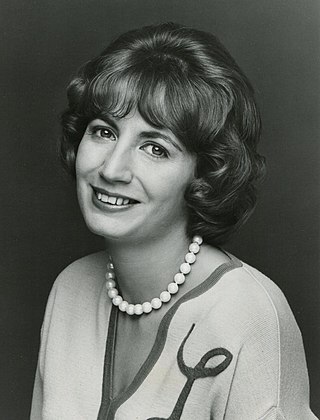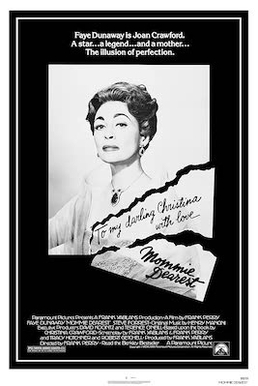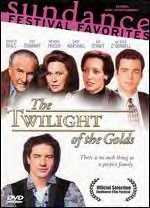
Henry Warren Beatty is an American actor and filmmaker. His career has spanned over six decades, and he has received an Academy Award and three Golden Globe Awards. He also received the Irving G. Thalberg Award in 1999, the BAFTA Fellowship in 2002, the Kennedy Center Honors in 2004, the Cecil B. DeMille Award in 2007, and the AFI Life Achievement Award in 2008.

Dorothy Faye Dunaway is an American actress. She is the recipient of many accolades, including an Academy Award, a Primetime Emmy Award, three Golden Globe Awards, and a BAFTA Award. In 2011, the government of France made her an Officer of the Order of Arts and Letters.

Winifred Jacqueline Fraser BissetLdH is a British actress. She began her film career in 1965 and first came to prominence in 1968 with roles in The Detective, Bullitt, and The Sweet Ride, for which she received a Golden Globe nomination as Most Promising Newcomer. In the 1970s, she starred in Airport (1970), The Mephisto Waltz (1971), Day for Night (1973), which won the Academy Award for Best Foreign Language Film, Le Magnifique (1973), Murder on the Orient Express (1974), St. Ives (1976), The Deep (1977), The Greek Tycoon (1978) and Who Is Killing the Great Chefs of Europe? (1978), which earned her a Golden Globe nomination as Best Actress – Motion Picture Comedy or Musical.

Marcello Vincenzo Domenico Mastroianni was an Italian actor. He is generally regarded one of Italy's most iconic male performers of the 20th-century, who played leading roles for many of the country's top directors, in a career spanning 147 films between 1939 and 1996, garnering many international honours including two BAFTA Awards, two Best Actor awards at the Venice and Cannes film festivals, two Golden Globes, and three Academy Award nominations.

Gia is a 1998 American biographical drama television film about the life and times of one of the first supermodels, Gia Carangi. The film stars Angelina Jolie as Gia and Faye Dunaway as Wilhelmina Cooper, with Mercedes Ruehl and Elizabeth Mitchell. It was directed by Michael Cristofer and written by Cristofer and Jay McInerney. The original music score was composed by Terence Blanchard. The film premiered on January 31, 1998 on HBO.

Carole Penny Marshall was an American actress, film director, and producer. She is best known for her role as Laverne DeFazio on the television sitcom Laverne & Shirley (1976–1983), receiving three nominations for the Golden Globe Award for Best Actress – Television Series Musical or Comedy for her portrayal.

Mommie Dearest is a 1981 American biographical psychological drama film directed by Frank Perry and starring Faye Dunaway, Steve Forrest, Mara Hobel, and Diana Scarwid, with supporting performances from Xander Berkeley in his feature film debut along with Rutanya Alda and Jocelyn Brando. Adapted from Christina Crawford's 1978 autobiography of the same name, the film follows her and her brother Christopher's upbringing under their adoptive mother, actress Joan Crawford, depicting her as abusive, controlling, and manipulative, prioritizing her Hollywood career over her family.
Steven Williams is an American actor in films and television. He is known for his roles as Captain Adam Fuller on 21 Jump Street, Lt. Jefferson Burnett on The Equalizer, Det. August Brooks on L.A. Heat, X on The X-Files, Russell "Linc" Lincoln in Linc's, and Rufus Turner in Supernatural.
The 60th Golden Globe Awards, honoring the best in film and television for 2002, were held on January 19, 2003, in the Beverly Hilton Hotel, Beverly Hills, California. The nominations were announced on December 19, 2002.
The 55th Golden Globe Awards, honoring the best in film and television for 1997, were held on January 18, 1998. The nominations were announced on December 18, 1997.

The Three Musketeers (also known as The Three Musketeers (The Queen's Diamonds)) is a 1973 swashbuckler film based on the 1844 novel by Alexandre Dumas. It is directed by Richard Lester from a screenplay by George MacDonald Fraser, and produced by Ilya Salkind. It stars Michael York, Oliver Reed, Frank Finlay, and Richard Chamberlain as the musketeers, with Raquel Welch, Geraldine Chaplin, Jean-Pierre Cassel, Charlton Heston, Faye Dunaway, Christopher Lee, Simon Ward, Georges Wilson and Spike Milligan.
David Marshall Grant is an American actor, singer and writer.

That Certain Summer is a 1972 American made-for-television drama film directed by Lamont Johnson. The teleplay by Richard Levinson and William Link was considered the first sympathetic depiction of gay people on American television. Produced by Universal Television, it was broadcast as an ABC Movie of the Week on November 1, 1972, and received a number of television awards and nominations. The movie was also recognized as being the first network drama to depict a stable, same-sex couple; the first to depict a gay parent; and the first gay themed show to win an Emmy, with Scott Jacoby winning for his performance. A novelization of the film written by Burton Wohl was published by Bantam Books.
The Twilight of the Golds is a play by Jonathan Tolins and produced by Charles H. Duggan that premiered at the Pasadena Playhouse on January 17, 1993. Strong reviews propelled it to theatres across the country including a stop at The Kennedy Center. After fifteen previews, the Broadway theatre production, directed by Arvin Brown, opened on October 21, 1993 at the Booth Theatre, where it ran for 29 performances. The cast included Jennifer Grey as Suzanne, Raphael Sbarge as David, David Groh as Walter, Judith Scarpone as Phyllis and Michael Spound as Rob. The play had received strong reviews across the country but was "largely clobbered" when it reached Broadway.

Blind Faith is a 1998 American made-for-television drama film directed by Ernest R. Dickerson. The movie stars Charles S. Dutton, Courtney B. Vance, Kadeem Hardison, Garland Whitt and Lonette McKee. It premiered in January 1998 on Showtime. The film's screenplay was nominated for an Independent Spirit Award, while Dutton received two nominations for awards, and Vance garnered one nomination. Set in the 1950s, during a murder trial, the film deals with themes of racism and homophobia.
Denise Faye Greenbaum is an American actress, dancer, choreographer, and director. She is the recipient of an American Choreography Award, as well as a Screen Actor's Guild Award for the 2002 film Chicago. Faye won the Dance Track Magazine Artist Award for best choreography in a feature film for her work in Burlesque. Additionally, she received nominations including the Fred and Adele Astaire Award and The World Dance Awards for her choreography in Burlesque.
Ross Kagan Marks is an American filmmaker and professor at New Mexico State University.









